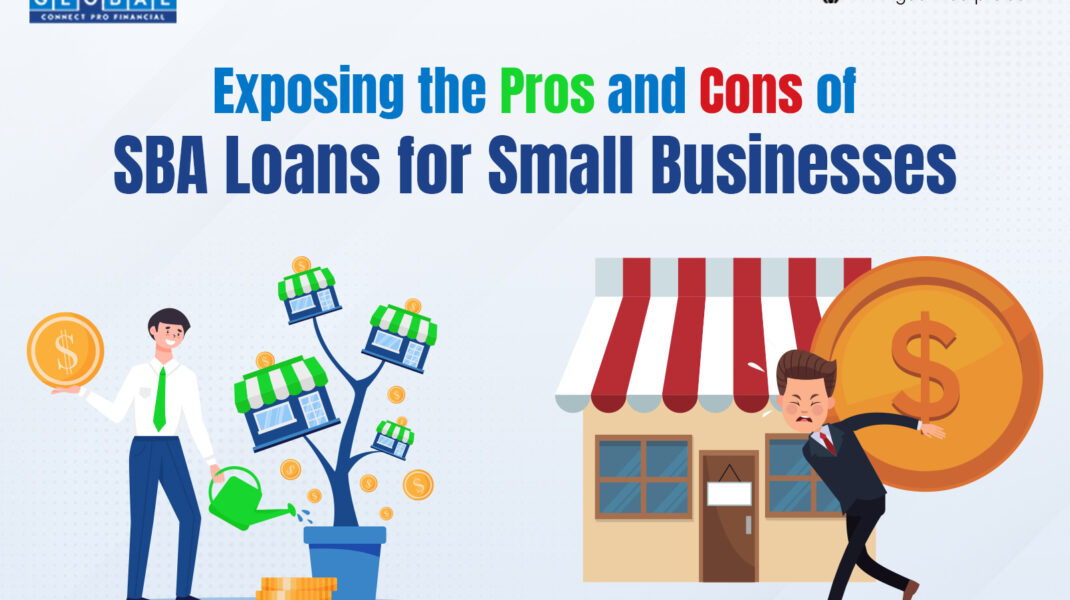Exposing the Pros and Cons of SBA Loans for Small Businesses

Securing funding can be a big challenge for small businesses. Whether it’s for everyday needs, expanding operations, or just staying afloat during tough times, having enough capital is crucial. Luckily, the Small Business Administration (SBA) in the US offers loans tailored specifically for small businesses. But before you jump into applying for one, it’s important to understand both the good and the not-so-good sides of SBA loans. Let’s break it down:
The Good Stuff (Pros)
1. Low Interest Rates
SBA loans typically come with lower interest rates compared to regular bank loans. That’s because the SBA backs these loans partially, which makes them less risky for lenders. So, you get better terms as a borrower.
2. Longer Repayment Terms
With SBA loans, you often get more time to pay back what you owe. This is super helpful for small businesses with tight budgets. It means you can manage your monthly payments better and have more flexibility to invest in growing your business.
3. Access to Cash
Getting your hands on cash can be tough for small businesses, especially if you don’t have a lot of assets or a stellar credit history. SBA loans can be a lifeline here. They give you the funds you need to expand your business, hire more people, or just improve how things are running.
4. Flexible Spending
You can use SBA loan money for lots of different things. Whether you need to pay off existing debts, expand your space, or buy equipment, these loans give you the flexibility to tackle whatever’s most pressing for your business.
5. Support and Guidance
The SBA offers advice and support to small businesses. Whether you’re trying to grow your business, manage your finances better, or navigate the loan application process, they’re there to help. This kind of support can be invaluable, especially if you’re new to borrowing money.
The Not-So-Good Stuff (Cons)
1. Slow Application Process
Applying for an SBA loan can be a lengthy process. It can take weeks or even months to get approved, and you’ll likely have to deal with a ton of paperwork along the way. This delay can be frustrating if your business needs money fast.
2. Strict Eligibility Criteria
Not every business qualifies for an SBA loan. There are strict requirements around things like your credit score, how long you’ve been in business, and what kind of collateral you can offer. Plus, some industries aren’t even eligible to apply.
3. Personal Guarantee Required
Often, business owners have to put up personal assets as collateral for SBA loans. This means if your business can’t pay back the loan, you’re on the hook personally. That’s a lot of risk to take on, especially if things don’t go as planned.
4. Collateral Needed
While SBA loans typically don’t require as much collateral as traditional bank loans, you still might need some. This can be tricky if your business doesn’t have a lot of assets to put up. It might mean you have to look elsewhere for funding.
5. Prepayment Penalties
Some SBA loans (like 504) come with penalties if you pay them off early. This can be a real pain if you’re trying to refinance at a better rate or just get rid of your debt sooner. These penalties can eat into the flexibility and affordability of the loan.
Conclusion
SBA loans can be a great option for small businesses. They offer access to funds that might not otherwise be available, with low rates and flexible repayment terms. But they’re not for everyone. The application process can be slow and cumbersome, and not meeting the eligibility criteria can be a major roadblock. Plus, there’s the personal risk involved in putting up collateral and guaranteeing the loan.
Before diving into an SBA loan, it’s important to carefully weigh the pros and cons. Make sure your business is eligible and that you’re comfortable with the risks involved. And don’t forget to take advantage of the support and guidance offered by the SBA along the way. With careful consideration and planning, an SBA loan could be just what your business needs to thrive.


Write a reply or comment
You must be logged in to post a comment.